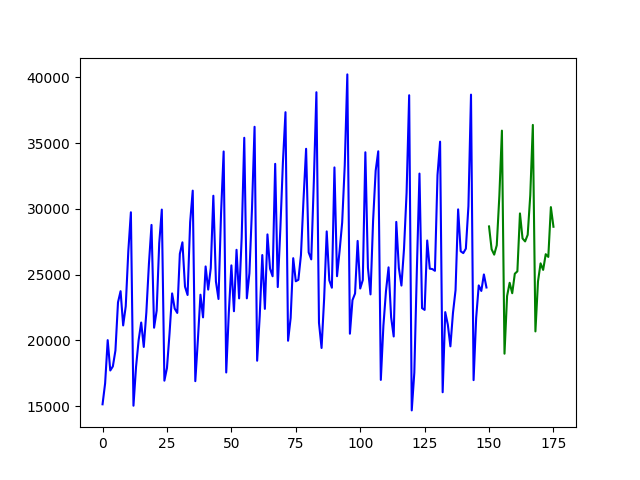
Security News
Oracle Drags Its Feet in the JavaScript Trademark Dispute
Oracle seeks to dismiss fraud claims in the JavaScript trademark dispute, delaying the case and avoiding questions about its right to the name.
Pmdarima (originally pyramid-arima, for the anagram of 'py' + 'arima') is a statistical
library designed to fill the void in Python's time series analysis capabilities. This includes:
auto.arima functionalityPmdarima wraps statsmodels under the hood, but is designed with an interface that's familiar to users coming from a scikit-learn background.
Pmdarima has binary and source distributions for Windows, Mac and Linux (manylinux) on pypi
under the package name pmdarima and can be downloaded via pip:
pip install pmdarima
Pmdarima also has Mac and Linux builds available via conda and can be installed like so:
conda config --add channels conda-forge
conda config --set channel_priority strict
conda install pmdarima
Note: We do not maintain our own Conda binaries, they are maintained at https://github.com/conda-forge/pmdarima-feedstock. See that repo for further documentation on working with Pmdarima on Conda.
Fitting a simple auto-ARIMA on the wineind dataset:
import pmdarima as pm
from pmdarima.model_selection import train_test_split
import numpy as np
import matplotlib.pyplot as plt
# Load/split your data
y = pm.datasets.load_wineind()
train, test = train_test_split(y, train_size=150)
# Fit your model
model = pm.auto_arima(train, seasonal=True, m=12)
# make your forecasts
forecasts = model.predict(test.shape[0]) # predict N steps into the future
# Visualize the forecasts (blue=train, green=forecasts)
x = np.arange(y.shape[0])
plt.plot(x[:150], train, c='blue')
plt.plot(x[150:], forecasts, c='green')
plt.show()

Fitting a more complex pipeline on the sunspots dataset,
serializing it, and then loading it from disk to make predictions:
import pmdarima as pm
from pmdarima.model_selection import train_test_split
from pmdarima.pipeline import Pipeline
from pmdarima.preprocessing import BoxCoxEndogTransformer
import pickle
# Load/split your data
y = pm.datasets.load_sunspots()
train, test = train_test_split(y, train_size=2700)
# Define and fit your pipeline
pipeline = Pipeline([
('boxcox', BoxCoxEndogTransformer(lmbda2=1e-6)), # lmbda2 avoids negative values
('arima', pm.AutoARIMA(seasonal=True, m=12,
suppress_warnings=True,
trace=True))
])
pipeline.fit(train)
# Serialize your model just like you would in scikit:
with open('model.pkl', 'wb') as pkl:
pickle.dump(pipeline, pkl)
# Load it and make predictions seamlessly:
with open('model.pkl', 'rb') as pkl:
mod = pickle.load(pkl)
print(mod.predict(15))
# [25.20580375 25.05573898 24.4263037 23.56766793 22.67463049 21.82231043
# 21.04061069 20.33693017 19.70906027 19.1509862 18.6555793 18.21577243
# 17.8250318 17.47750614 17.16803394]
pmdarima is available on PyPi in pre-built Wheel files for Python 3.7+ for the following platforms:
If a wheel doesn't exist for your platform, you can still pip install and it
will build from the source distribution tarball, however you'll need cython>=0.29
and gcc (Mac/Linux) or MinGW (Windows) in order to build the package from source.
Note that legacy versions (<1.0.0) are available under the name
"pyramid-arima" and can be pip installed via:
# Legacy warning:
$ pip install pyramid-arima
# python -c 'import pyramid;'
However, this is not recommended.
All of your questions and more (including examples and guides) can be answered by
the pmdarima documentation. If not, always
feel free to file an issue.
FAQs
Python's forecast::auto.arima equivalent
We found that pmdarima demonstrated a healthy version release cadence and project activity because the last version was released less than a year ago. It has 2 open source maintainers collaborating on the project.
Did you know?

Socket for GitHub automatically highlights issues in each pull request and monitors the health of all your open source dependencies. Discover the contents of your packages and block harmful activity before you install or update your dependencies.

Security News
Oracle seeks to dismiss fraud claims in the JavaScript trademark dispute, delaying the case and avoiding questions about its right to the name.

Security News
The Linux Foundation is warning open source developers that compliance with global sanctions is mandatory, highlighting legal risks and restrictions on contributions.

Security News
Maven Central now validates Sigstore signatures, making it easier for developers to verify the provenance of Java packages.